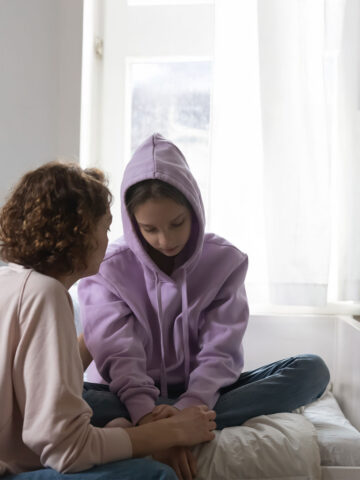COVID-19 hallucinations in children
Though much remains to be learned about COVID-19 and its longtime impact, Dr. Wayne Nguyen, pediatric psychiatrist and medical director of the Cherese Mari Laulhere Mental Health Inpatient Center at CHOC, reassures parents that psychosis is likely not a byproduct of COVID-19 in children.
Some studies have been published finding small numbers of hospitalized COVID-19 patients suffering from psychosis after experiencing no mental health concerns previously, and CHOC has indeed seen an increase of patients with psychosis since the pandemic began.
But Dr. Nguyen believes this increase in pediatric psychosis cases is due largely to existing mental health issues in children exacerbated by the stress and isolation brought on by the pandemic – not the impact of COVID-19 itself on a child’s health.
“The cause isn’t necessarily from COVID-19,” he says. “We don’t know that answer for sure yet. But it could be the result of a lot of different things like more severe mental health illnesses. We have seen more psychotic cases in our inpatient unit but it could be from the increasing substance use that we are occurring along with it.”
Dr. Nguyen and his colleagues are in the early stages of a data collection study examining the number of children treated at the center for psychosis before and during the pandemic.
Regardless, the uptick underscores the importance of tending to children’s mental health in the best of times, but even more during the ongoing pandemic, Dr. Nguyen says.
“Mental health for children and adolescents is critically important and psychosis can be a severe outcome of mental health difficulties or illnesses,” he says.
Dr. Nguyen says it’s also possible for someone who was extremely ill with COVID-19 to slip into delirium, a phenomenon that is not unique to COVID-19, which can present with psychosis.
According to the National Institute of Mental Health, psychosis describes conditions that affect the mind to cause a loss of contact with reality. A child who is suffering from psychosis might hear and see things that aren’t there, or they may have an unreasonable belief about things that aren’t happening, Dr. Nguyen says.
“Those are the main things that you would think about,” he says. “So, for example, they might say, ‘I see a person standing there in front of me’ or ‘I hear people talking to me.’”
If a parent were to suspect their child was suffering from psychosis, they ought to seek help from a professional, Dr. Nguyen says.
If the child is in danger of hurting themselves or another, parents should seek emergency treatment, Dr. Nguyen recommends. Otherwise, a parent could seek assistance from a mental healthcare professional or from the child’s primary care provider.
Get more expert health advice delivered to your inbox monthly by subscribing to the KidsHealth newsletter here.
Get mental health resources from CHOC pediatric experts
The mental health team at CHOC curated the following resources on mental health topics common to kids and teens, such as depression, anxiety, suicide prevention and more.






